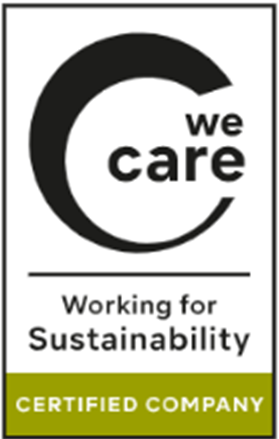We Care means
From cultivation in the countries of origin to the domestic supermarket, We Care certified companies act with their partners for a fair and environmentally friendly production of food. Food companies that import, process or produce food themselves, that also or exclusively have food produced by other companies and that may also distribute their raw materials or finished products as wholesalers or retailers can be certified under the standard.
The newly developed We Care Standard is a corporate sustainability standard. Within the scope of certification, not individual products are audited, but the company's entire management approach.
Becoming certified with Kiwa
We are an independent certification body, and our task is to ensure that We Care certified companies fulfil their due diligence obligations along the supply chain and continuously improve. At the same time, the Research Institute for Organic Agriculture, which acts as the standard-setter, monitors the standard and continually develops it to meet the highest standards. This creates a commitment and a new ecological and social quality in the supply chain.
We Care comprises the four fields of action
 |
|
Passing certification according to this standard certifies that the certified food company acts socially, sustainably and fairly, according to verifiable criteria - especially in supply chain management.
Our goals are your advantages
- Introduction of a holistic standard with a uniform assessment system
- Integrated system for sustainability management of sites and supply chains for companies in the food industry
- Independent verification and confirmation of sustainable operations
- Certification of the management system
- Development orientation with basic as well as higher levels
- An integrated system instead of multiple certifications for companies where sustainability standards have not yet been implemented
- Integration of existing environmental and social certifications and closing of any remaining gaps in sustainability management for companies that already have individual sustainability-relevant certifications
- Ensuring credibility and transparency along the supply chain
- Usability for corporate communication
- Proof of sustainability management and sustainable supply chain management to business partners (B2B) and interested members of the public
- Transparency for consumers through labelling of the sustainability label on organic products, if companies implement comprehensive sustainability requirements as a whole (not only selectively for selected products) (B2C; only applicable for certification at a higher level)
Contact person:
Raoul Mancke
T + 491702261294 (Raoul Mancke )


